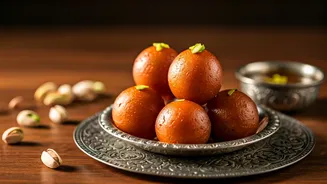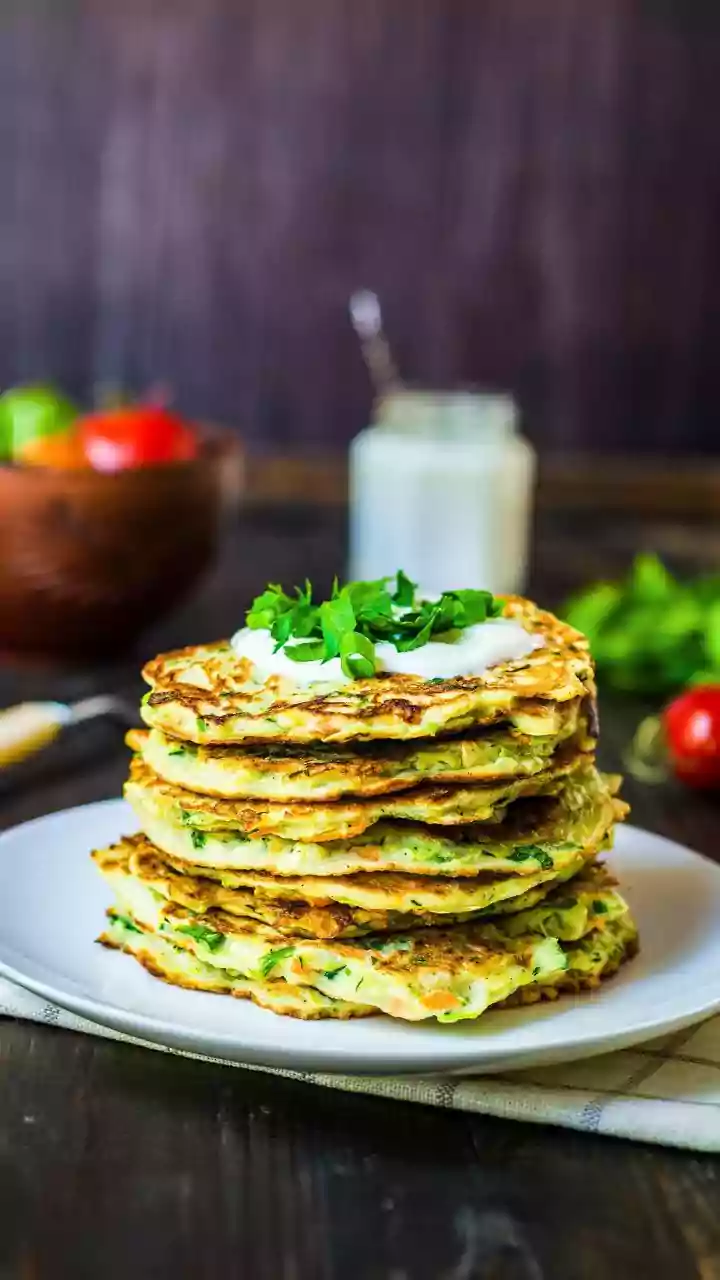The Essence of Diwali
Diwali, a festival celebrated with immense enthusiasm throughout India, is marked by vibrant lights, fireworks, and, most importantly, an array of delectable
sweets. The tradition of exchanging sweets during Diwali symbolizes the sharing of joy and prosperity. It's a time when families come together, not just to light diyas and burst firecrackers, but also to savor these special treats. The preparation of these sweets often becomes a family affair, passed down through generations. Each sweet carries a unique story and cultural significance, adding to the richness of the Diwali celebrations. This festival is a time when the entire nation enjoys the traditions and embraces the joy of being together.
Gulab Jamun's Sweet Embrace
Gulab Jamun, a classic Indian sweet, is renowned for its soft, spongy texture and the rich sweetness it delivers with each bite. The name ‘Gulab Jamun’ is derived from Persian words, where 'gulab' means rose water, referring to the rose-flavored syrup, and 'jamun' which is the Hindi word for a dark purple fruit, similar to the color of the fried dough balls. These deep-fried milk balls are soaked in a fragrant sugar syrup, often infused with cardamom, rose water, or saffron. The preparation can vary, sometimes involving milk solids (khoya) or milk powder to achieve the perfect texture. The syrup-soaked treats provide a luscious mouthfeel, and they are almost essential to the festival, enjoyed by all ages.
Mysorepak: Golden Delight
Mysorepak is a celebrated South Indian sweet known for its rich, buttery taste and melt-in-your-mouth consistency. This confection hails from Mysore and has gained popularity across India and beyond. Made with gram flour (besan), ghee, and sugar, it requires precise measurements and skillful cooking techniques to attain its characteristic texture. The ghee, in particular, is the key ingredient, adding both flavor and the characteristic porous appearance. The batter is slowly cooked in ghee, which gives it a golden hue. The sugar syrup must reach a specific consistency before being mixed with the gram flour and ghee, to achieve the perfect result. Mysorepak is a sweet of choice during Diwali.
Gujiyas: Sweet Crescent Treats
Gujiyas, also spelled as Gujias, are sweet dumplings popular during Diwali in Northern India. These crescent-shaped sweets are made of maida (refined flour) and are filled with a mixture of dried fruits, khoya (milk solids), and nuts, often flavored with cardamom. The filling is what provides a delicious taste that complements the crispy fried outer shell. The preparation of Gujiyas is time-consuming, yet enjoyable when done with family. The dough is rolled into small circles, filled with the sweet mixture, and then sealed around the edges. They are then deep-fried until golden brown. Gujiyas are a symbol of festive gatherings and shared celebrations.
Thenkuzhal and Murukku
Thenkuzhal and Murukku are a family of savory snacks often enjoyed during Diwali, offering a delightful contrast to the sweetness of the other treats. Thenkuzhal, literally translating to ‘coconut coil,’ is made with rice flour and coconut milk, giving it a unique flavor and texture. Murukku, meaning ‘twisted,’ comes in various forms, also made from rice flour and urad dal flour. Both of these snacks are deep-fried until crisp and golden. Their shapes and textures make them perfect for dipping into chutneys or simply enjoying on their own. These snacks add a delicious, crunchy element to the Diwali spread, and are enjoyed by everyone.
Other Sweet Delights
Besides Gulab Jamun, Mysorepak, and Gujiyas, Diwali celebrations often include a wide variety of other sweets. Jalebi, a spiral-shaped sweet soaked in sugar syrup, offers a crispy and syrupy sensation. Ras Malai, soft cheese patties soaked in thickened, sweetened milk, is a popular choice for its creamy texture. Badusha is a sweet that resembles a glazed doughnut and melts in your mouth. Other regional specialties like Kalakand, Muthusaram, and Cham Cham add to the diverse flavors found across India. The wide variety ensures that there is something for everyone to enjoy during this festive occasion. It is common for each household to have their own specialties, adding to the distinctiveness of Diwali celebrations.























